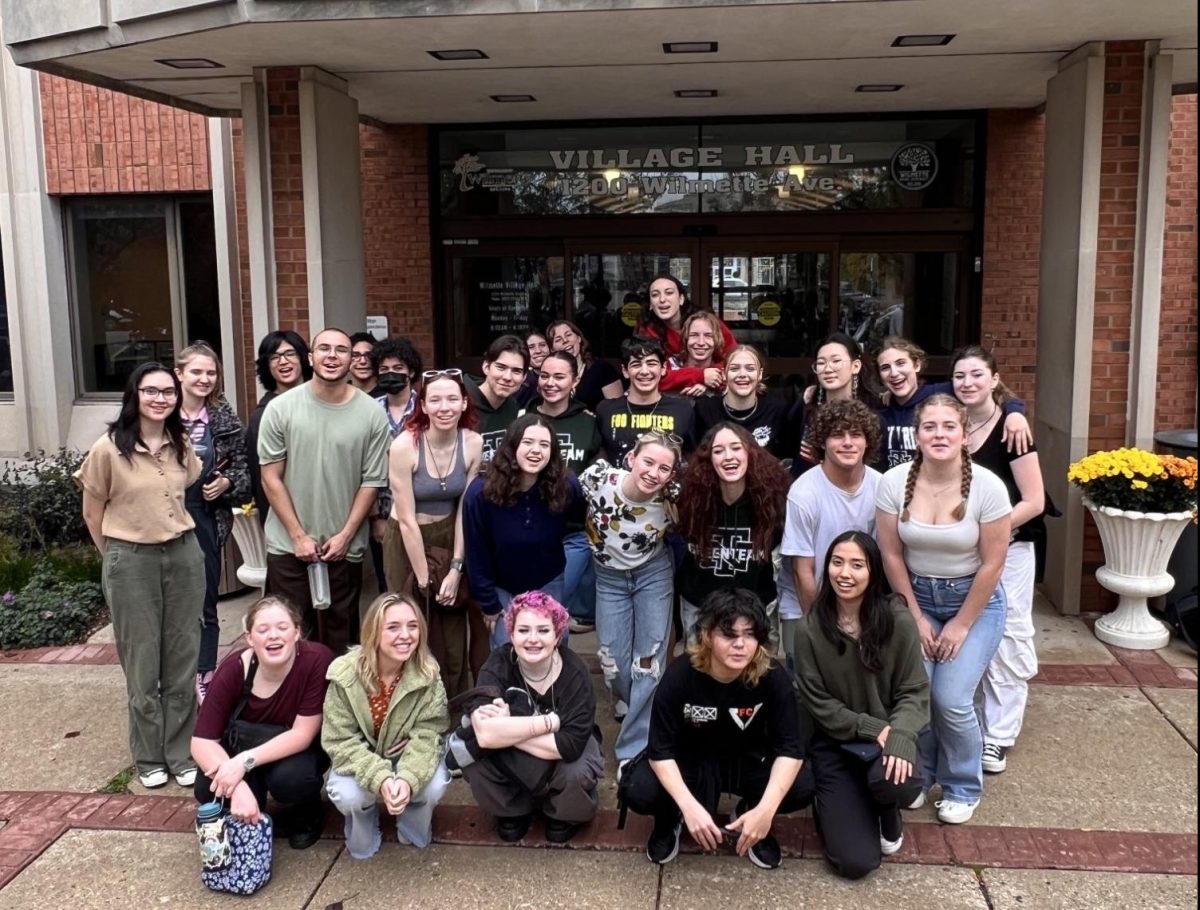From late October to early November of 2023, students from New Trier High School’s Integrated Global Studies School (IGSS) met with Township Village Boards to propose ways to increase affordable housing on the North Shore.
As part of their quarter one project on poverty and housing, IGSS students worked with students who lived in their town (Glencoe, Kenilworth, Northfield, Wilmette, and Winnetka). They worked together to research and create a proposal on the best way to implement affordable housing.
In Illinois, municipalities must have at least 10% of their share of housing units affordable, per the 2003 Affordable Housing Planning and Appeal Act. That means those houses must be accessible to people who make no more than 60% of the median income in the municipality.
According to the Illinois Housing Development Authority, in 2018, every New Trier Township community was below that threshold: Glencoe (2.5%), Kenilworth (2.2%), Northfield (3.2%), Wilmette (4.5%), and Winnetka (2.7%).
“It was a rather difficult project. IGSS teachers a lot of the time want us to save the world. It’s very ambitious,” junior Aleksei Sokolov, a Winnetka resident, said.
Wilmette students looked into live-work buildings, which have both commercial and residential use, accessory dwelling units, a secondary house that shares a plot of land with a larger house, and community land trusts.
Junior Claire Karnes, a Wilmette resident, said that with the community land trust, Wilmette would buy property that had been abandoned, behind on taxes, or in a state of disrepair. The team proposed that Wilmette buy 10 homes yearly, after which the town would own the land, and then resell the house at less than market value.
“This doesn’t change anything with the land or the surrounding area, and these are homes that have already existed for years in the community,” senior Diego Cusatis, a Wilmette resident, said. “Nothing changes except for the affordable housing stock increases.”
In late 2021, Wilmette, with the assistance of the nonprofit Community Partners for Affordable Housing, started locating 15 houses that would operate under the community land trust model.
The money for that community land trust came from developer Green Bay Wilmette, which paid Wilmette $1.6 million to support affordable housing as part of the approval process for the seven-story, mixed-use building at 1210 Central Avenue.
Winnetka students also proposed community land trusts to reach a new audience: people who work but do not reside in Winnetka.
Junior Piper Ross, a Winnetka resident, said that only 7.2% of people who work in Winnetka also live in Winnetka. Ross sees that as a problem, as many people must commute from the city to Winnetka and vice versa every day, which is an extra financial burden for individuals.
“You are losing money because you can’t live in the place [you work] and you have to pay more money to get [to] the place that you’re working at,” Ross said.
Senior Grace Satter said that in the early 2010s, the Winnetka Village Board essentially “banned” the discussion of affordable housing. That came after prolonged opposition from the Winnetka Homeowners’ Association, whose three endorsed candidates won election to the Village Board in 2011.
As a result, according to then-Village Attorney Katherine Janega, the Village Board became required to pass legislation whenever they wanted to discuss affordable housing in the future.
Some thought back then that affordable housing would attract people with drug addictions and people of lower socioeconomic status to Winnetka. Satter said, however, it would help teachers, government workers, and police officers.
“Those are the people who commute to Winnetka every single day, and most don’t have the income to actually live in Winnetka,” Satter said.
Satter feels a personal connection to the community land trust model, seeing it as a way to increase access to high-quality education.
“My grandfather used education as a catalyst to get out of his rural village [in India], come to America, [and] build a life. He instilled that in his kids, and they used that…as a jumping point to really boost their economic status,” Satter said. “That has rubbed off on me, and I see that the education we get here is just so amazing and why can’t we offer that to other people.”
When the project started, Satter was unaware of affordable housing but now has become more engaged than ever to make a change in her community. She wants other students to do the same.
“I think the more students get involved with this, the louder we can be, the more change we can make because we are residents, and we do deserve to have our voices heard,” Satter said.
When Cusatis and his classmates spoke to the Wilmette Village Board, he saw firsthand the impact teenagers’ perspectives can have on the government.
“Showing that the youth is passionate about implementing more affordable housing definitely gave them a kick to be excited about what they’re doing, instead of just seeing it as mandatory,” Cusatis said.







































